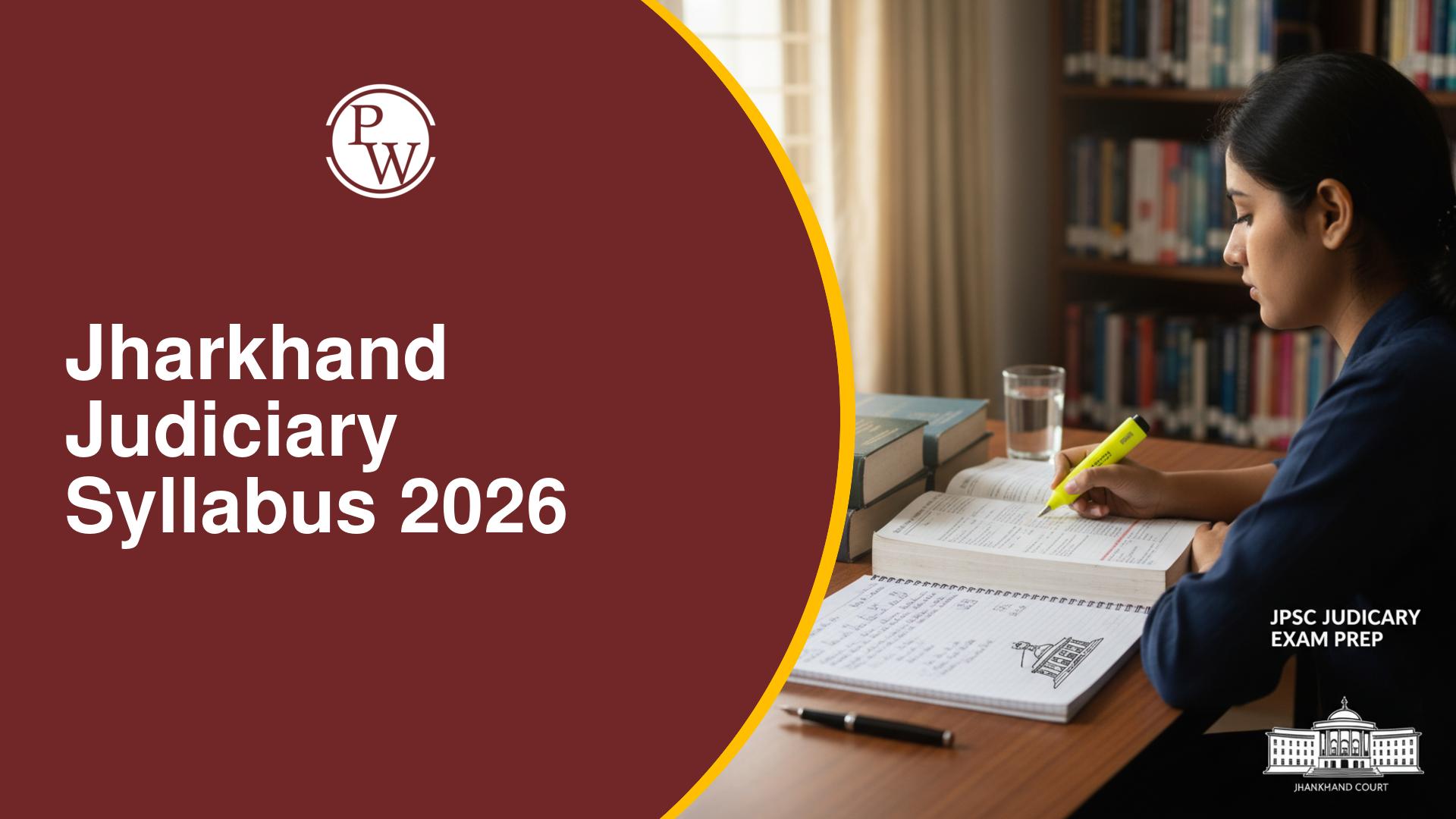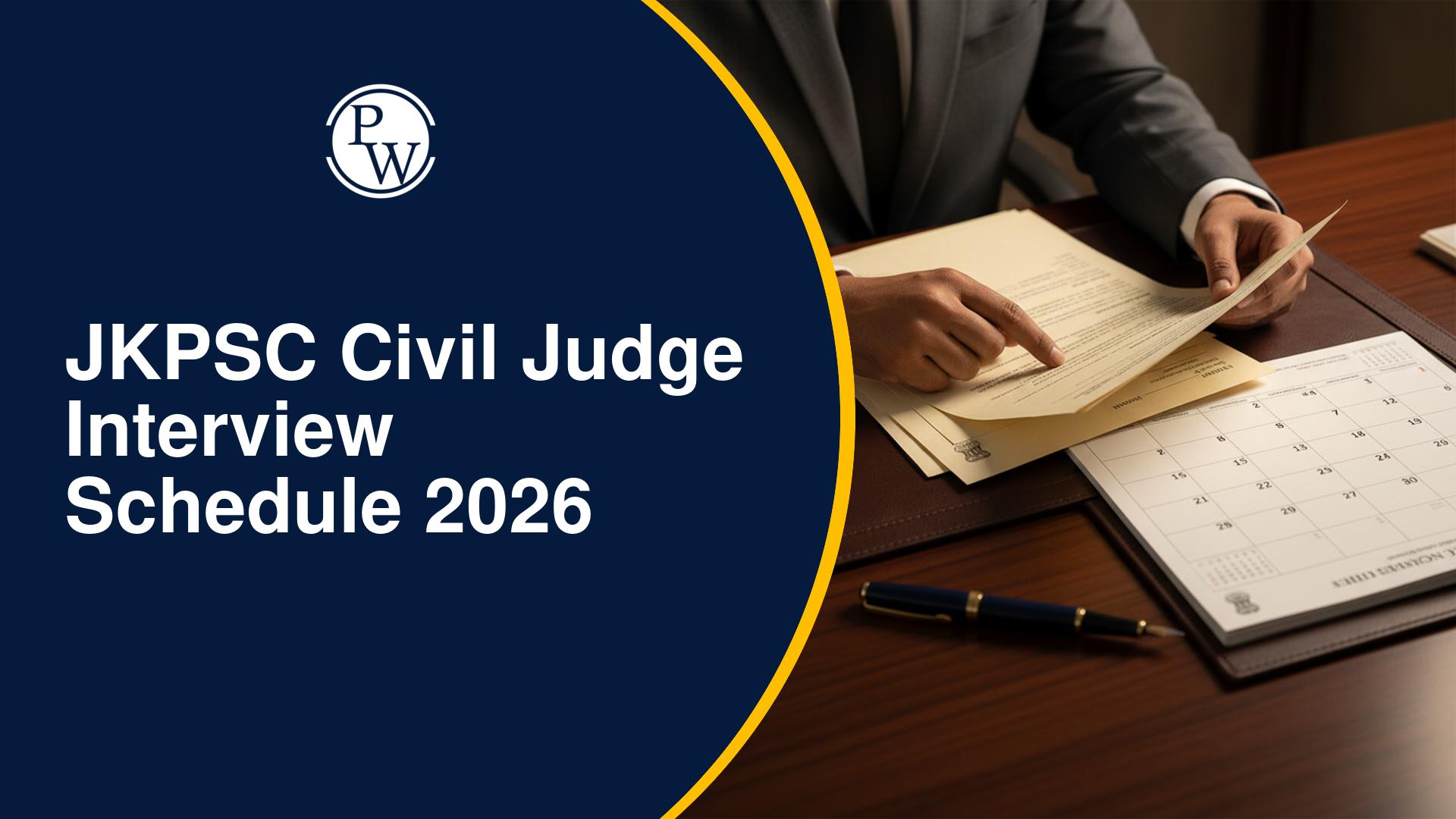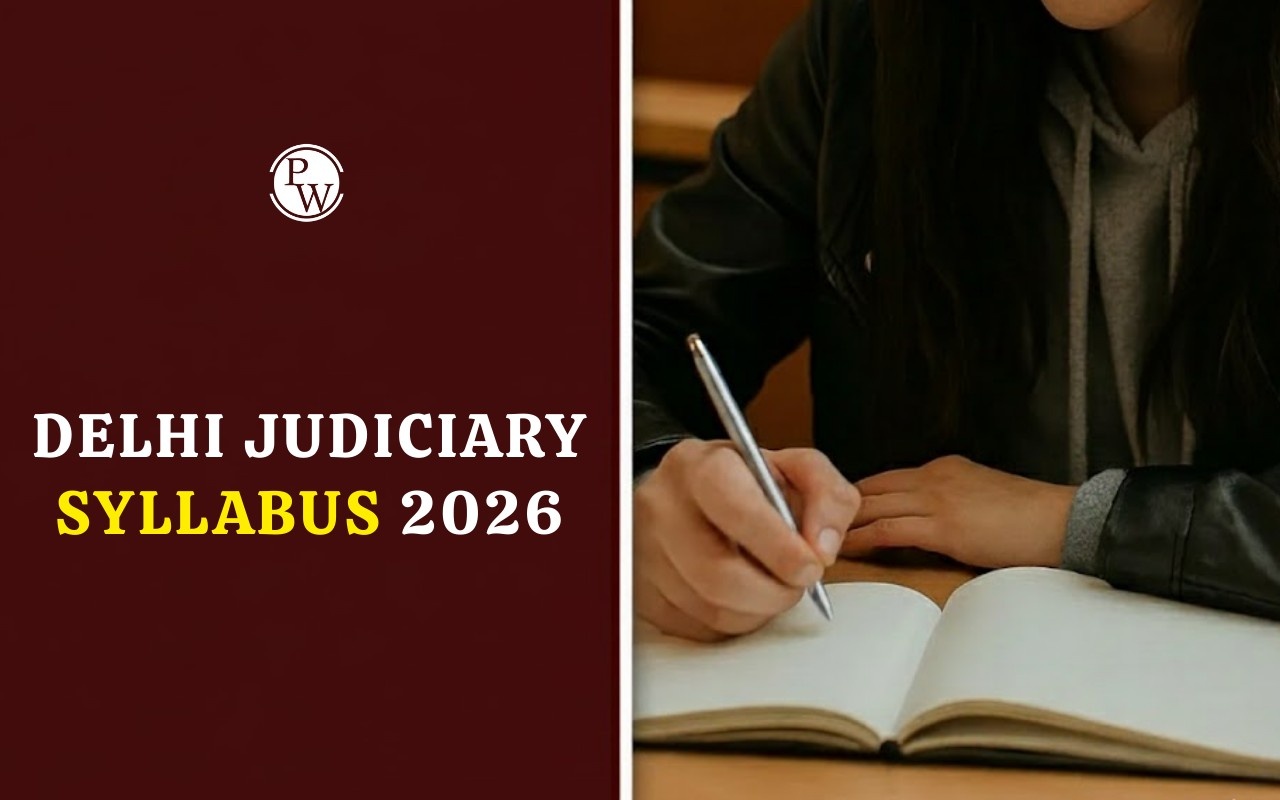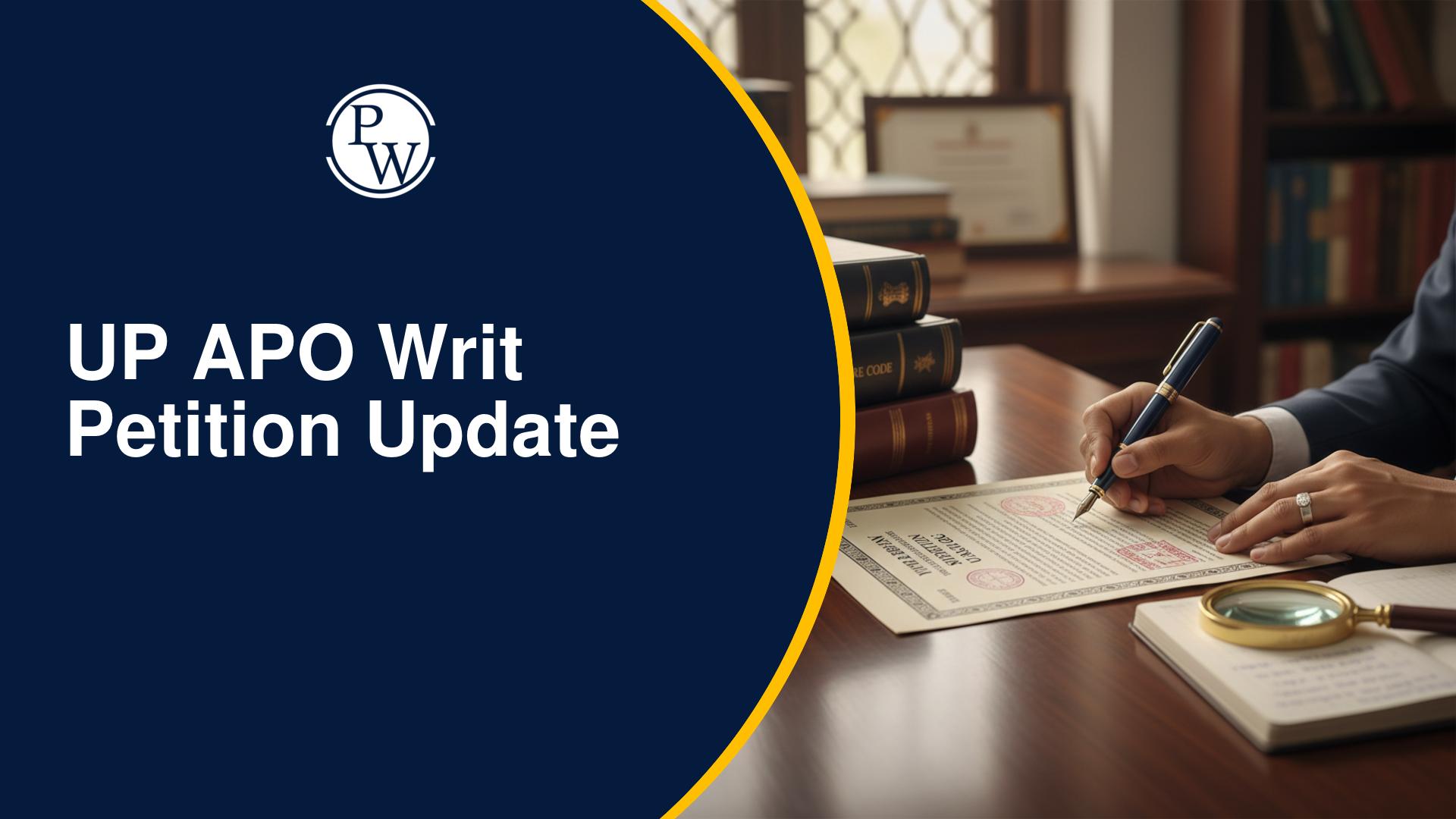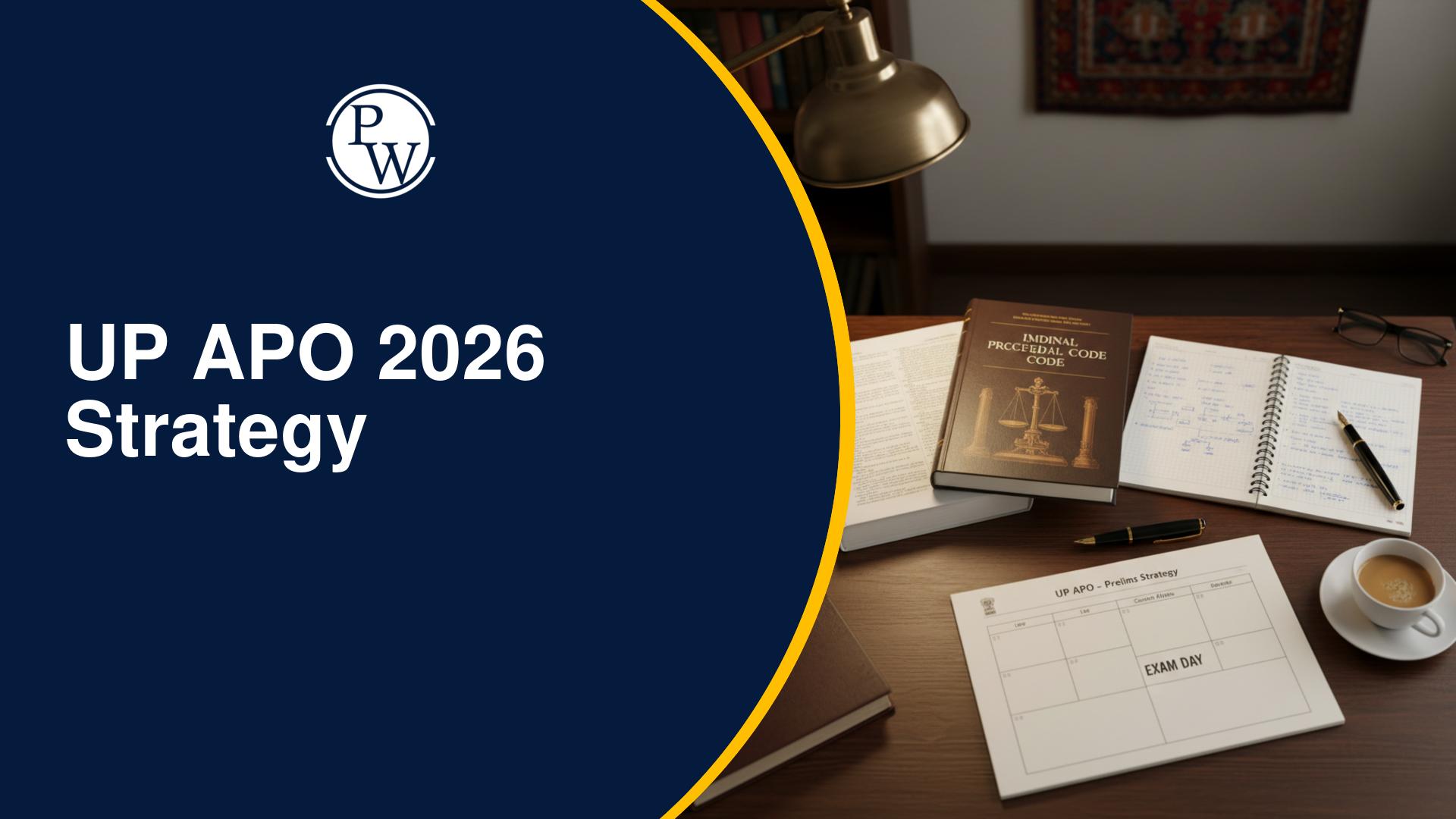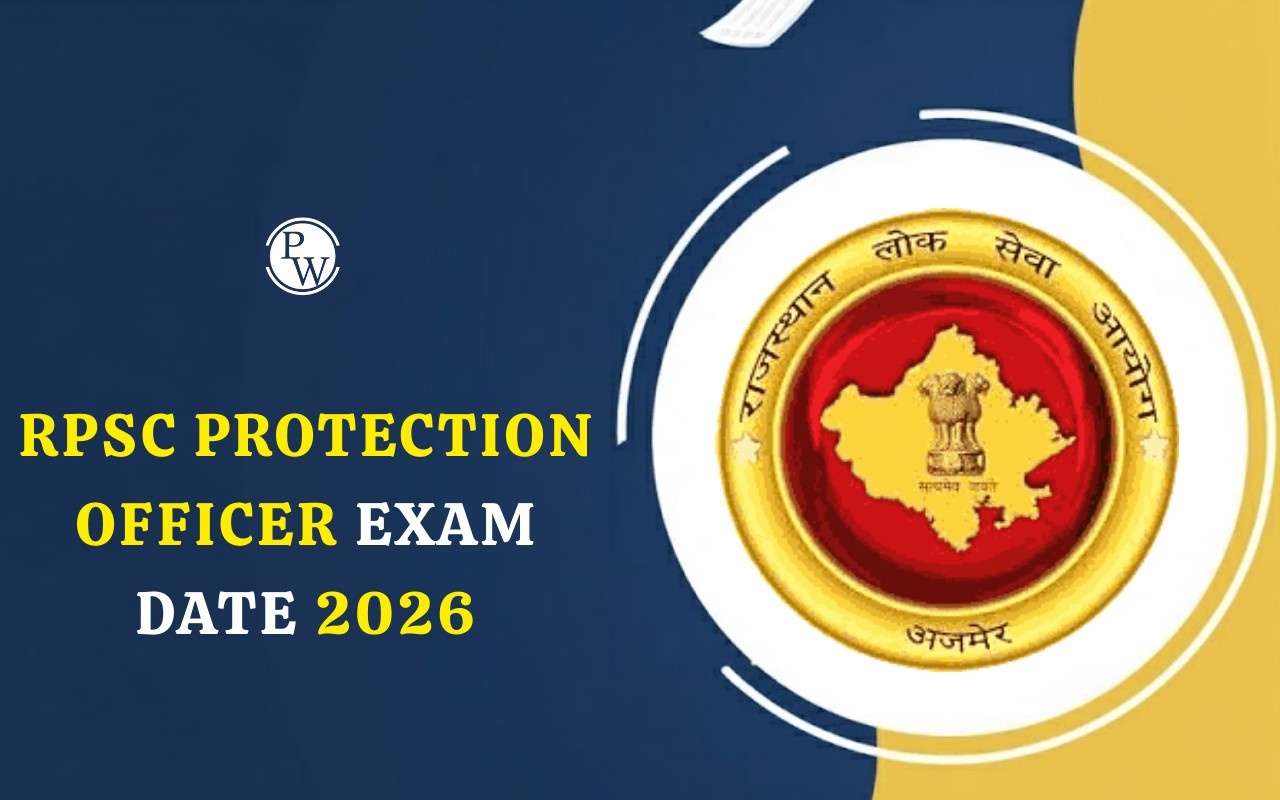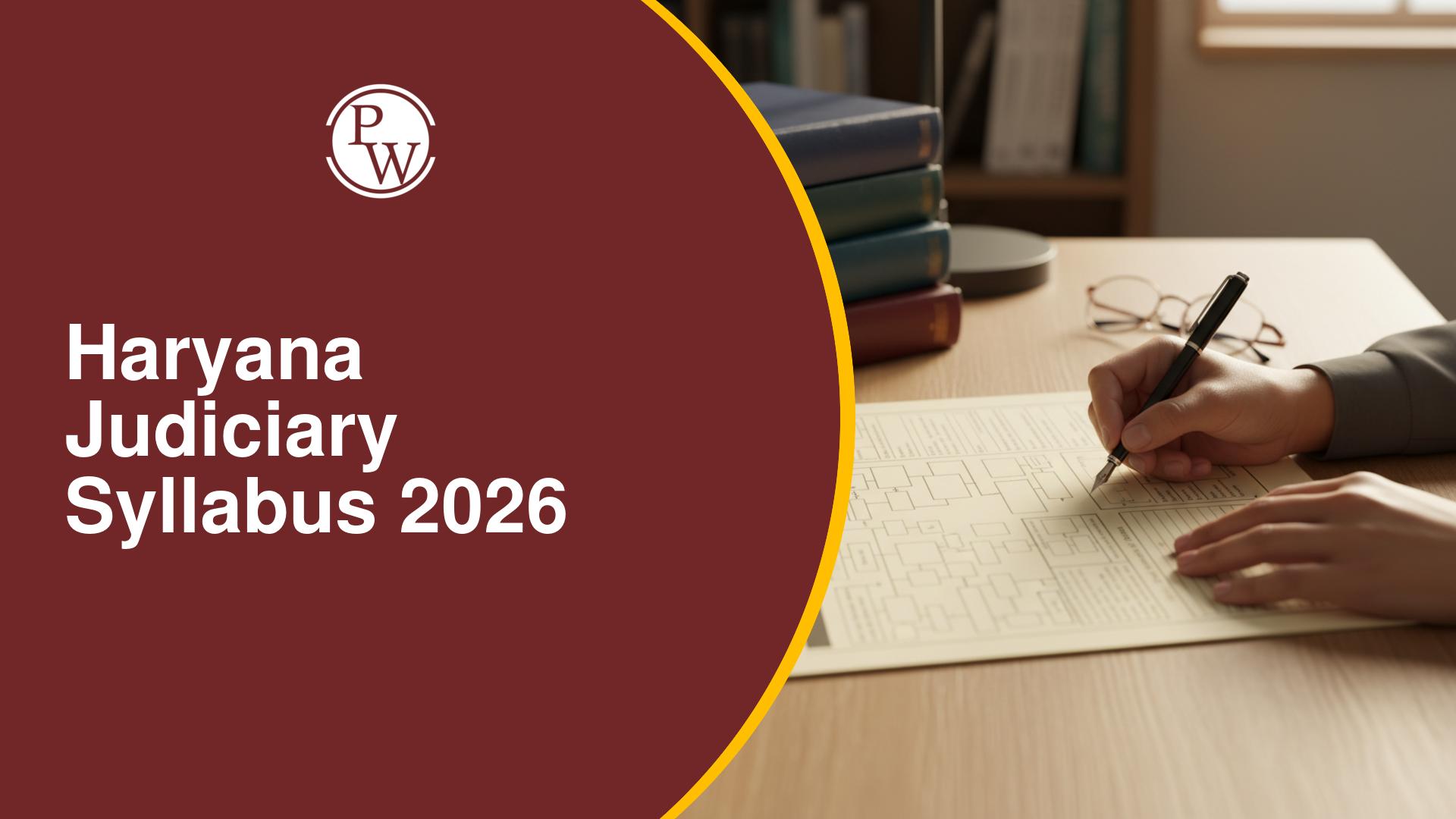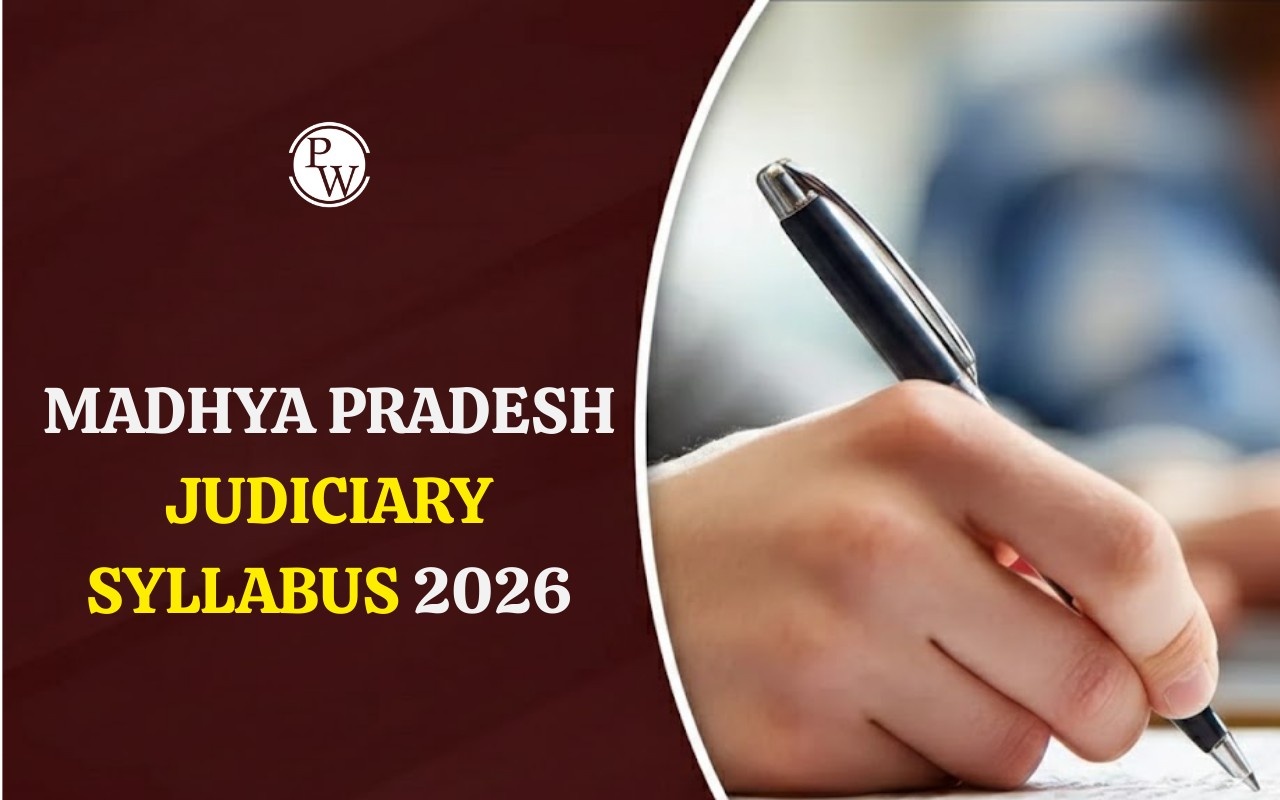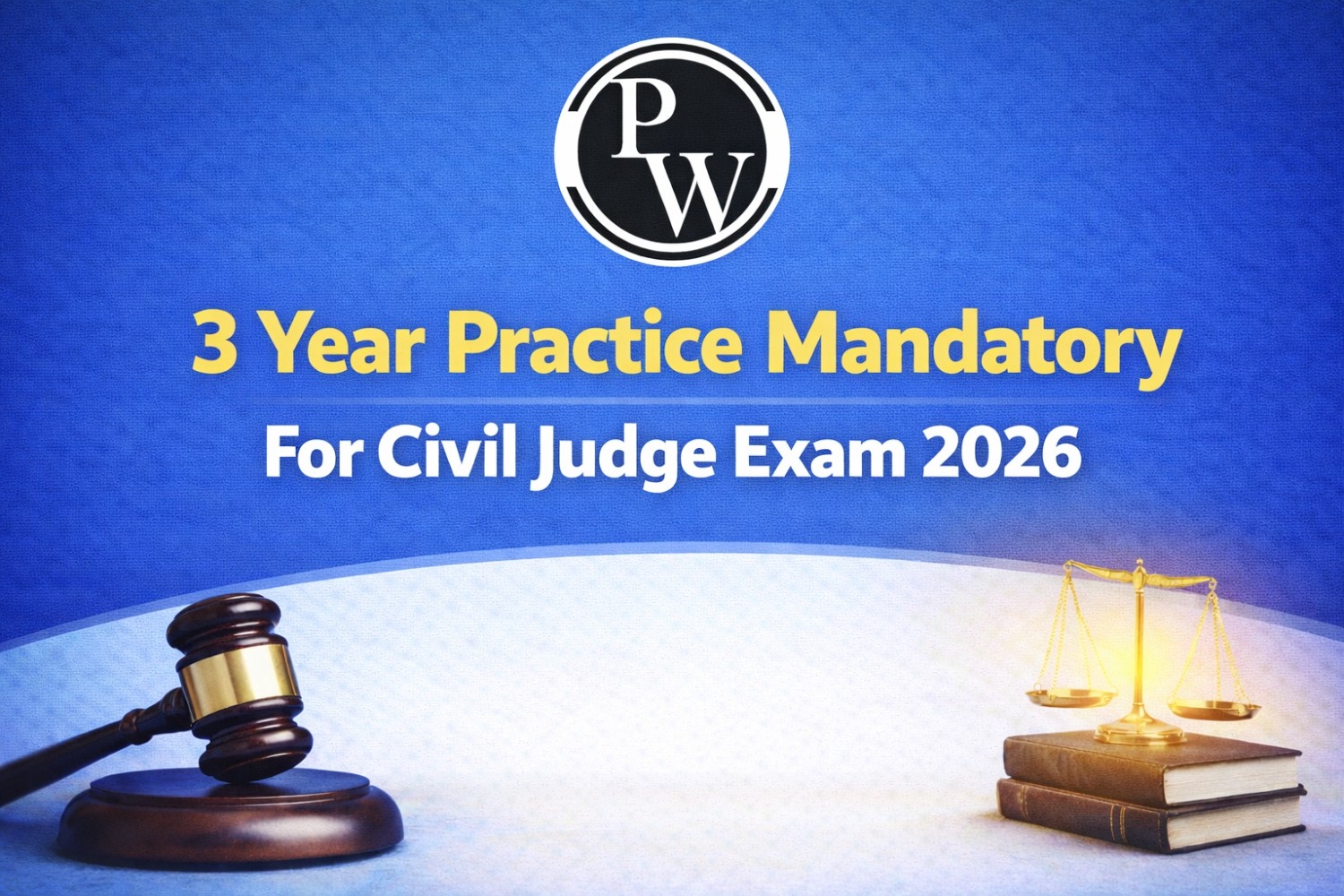The last step in the
UP PCS J exam
is a During this interview, you'll likely be asked general studies questions. So, it's a good idea to follow some tips for preparing in that area to get ready for the interview round.
Q) What does strict liability mean?
Ans: Strict liability means that a person can be held legally responsible for damages or injuries even if they didn't act negligently or with fault.
Q) What's your favorite law and why?
Ans: Before your UP Judiciary interview, make sure to read the introductory sections of all the subjects included in the examination. Understand what each subject aims to achieve and its objectives. When answering interview questions, try to incorporate these aims and objectives into your responses.
Q) Can you explain Section 6 of the Indian Evidence Act with an example?
Ans: Section 6 of the Indian Evidence Act states that facts connected with a fact in issue, even if they are not the main focus, are relevant. For example, in a murder case, anything said or done by the accused or the victim shortly before or after the crime is relevant.
Q) Who drafted the Indian Evidence Act?
Ans: Sir James Fitzjames Stephen
Q) When was the High Court Allahabad established?
Ans: 1866
Q) How many High Courts does India have?
Ans: 25
Q) What does the Arms Act regulate?
Ans: The Arms Act controls everything about guns and bullets, like how they're bought, owned, made, sold, moved around, brought in from other places, taken out of the country, and who can have a license for them.
Q) What is Triple Talaq?
Ans: Triple Talaq is a form of divorce under Sharia Law where a husband can divorce his wife by saying ‘Talaq’ three times. It's now punishable under the Muslim Women (Protection of Rights on Marriage) Bill, 2019.
Q) What are some academic history-related UP Judiciary interview questions?
Ans: Review your college subjects before your interview.
Q) Can you explain situational-based Law UP Judiciary Interview Questions?
Ans: Understand the situation and focus on the facts. Break it down into smaller parts to fully understand it.
Q) What are the pros and cons of the Indian Constitution and IPC?
Ans: Pros: It's the official criminal code of India and extends to the whole country. Cons: It's old and may need updating as new laws are introduced.
Q) What is a writ?
Ans: A Writ is an order issued under authority.
Q) Where is CPC not applied?
Ans: Writ Proceedings
Q) What is a PIL?
Ans: PIL stands for Public Interest Litigation, which helps marginalized sections of society whose fundamental rights are violated.
Q) What are India's interests in the Doklam issue?
Ans: India has signed a peace treaty with Bhutan and has military advantages in the area.
Q) Can you tell me about the Midnight hearing at the Supreme Court in the Yakoob Menon case?
Ans: The Chief Justice of India, Justice Dipak Misra, presided over the first incident of a midnight hearing at Nagpur Jail regarding Yakoob Menon's appeal, which occurred 14 days after the rejection of his mercy petition. Ultimately, his appeal was rejected.
Q) What are your personal opinion on triple talaq?
Ans: This approach goes against the ideas of treating men and women equally and keeping religion separate from government affairs. It undermines the respect, fairness, and basic rights that women deserve, especially Muslim women in the country.
Q) Has the government prohibited cow slaughter? Is there a provision about it in the Constitution?
Ans: Article 48 of the Constitution prohibits the eating of beef and the killing of animals, along with smuggling and trading across neighboring borders.
Q) What does "horizontal reservation" mean, and how does it function?
Ans: Horizontal reservations intersect with vertical reservations, creating interlocking reservations.
Q) What is Money Bill? What is Zero Hour?
Ans: Money Bills are brought forth in the Lok Sabha, while the Zero Hour denotes the period right after the Question Hour in parliamentary proceedings.
Q) What is a protest petition?
Ans: A protest Petition is filed by the victim against the police's investigation conclusions.
Q) Execution of decree of specific performance?
Ans: It's the process of satisfying a decree obtained from a court of law against another person.
Q) What is the rule of law?
Ans: The rule of law refers to the idea that the constitution holds the highest authority in the country, and both the legislative and executive branches derive their power from it.
UP PCS J Interview
Personality-Based Questions
Prepare for your UP Judiciary Interview with these commonly asked personality-based questions. Practice regularly to enhance your chances of success in the UP Judiciary Exam.
|
Questions
|
Tips for Answering
|
|
Tell something about yourself.
|
Highlight your key achievements and experiences relevant to the judiciary.
|
|
Who is your ideal person, and why?
|
Choose someone with admirable qualities and explain how they inspire you.
|
|
What motivates you to pursue a career as a civil judge?
|
Discuss your passion for justice and your desire to uphold the law.
|
|
What are your strengths and weaknesses?
|
Be honest about your strengths and weaknesses, and discuss how you manage them.
|
|
How do you manage stress?
|
Explain your coping mechanisms for handling stressful situations effectively.
|
|
What sets apart hard work from smart work?
|
Differentiate between diligence and efficiency in achieving goals.
|
|
Why should we select you?
|
Highlight your distinctive attributes and how they correspond to the responsibilities of a civil judge.
|
|
What if we don't choose you?
|
Showcase your resilience and determination to keep striving for success.
|
|
How do you respond to change?
|
Describe your adaptability and openness to embracing change positively.
|
|
How do you handle stress and pressure in your work environment?
|
Share strategies for maintaining composure and productivity under pressure.
|
|
Can you recall a time when you had to make a tough choice?
|
Narrate a challenging situation and how you navigated through it with integrity.
|
|
How do you manage your time effectively?
|
Discuss time management techniques and tools you use to stay organized.
|
|
What inspires you to pursue a career in the legal field?
|
Reflect on your passion for justice and the opportunity to make a difference in society.
|
|
How do you keep up with your understanding and abilities in the legal field?
|
Share your commitment to continuous learning through reading, courses, and practical experience.
|
|
Describe a time when you had to handle a difficult client.
|
Detail your approach to resolving conflicts and satisfying client needs professionally.
|
|
How do you handle constructive criticism from others?
|
Describe how you see feedback as a chance to get better and improve.
|
|
How do you approach problem-solving in your work?
|
Outline your analytical skills and ability to devise effective solutions to complex issues.
|
|
Can you tell me about a time when you had to complete a task within a very short timeframe?
|
Illustrate your time management and prioritization skills in meeting urgent project timelines.
|
|
How do you stay calm and composed in high-pressure situations?
|
Share techniques for maintaining a calm demeanor and clear thinking during stressful moments.
|
|
What do you aim to achieve in your legal career in the long run?
|
Outline your aspirations for career advancement and contribution to the legal community.
|
UP PCS J Interview
Code of Conduct
Before your UP Judiciary Interview, familiarize yourself with the code of conduct to ensure a professional and respectful interaction:
|
Code of Conduct
|
Description
|
|
Dress Professionally
|
Wear formal attire that is clean and well-presented, avoiding flashy accessories.
|
|
Be Punctual
|
Be punctual by arriving on time or a little early to show that you value the interviewer's time.
|
|
Show Respect
|
Greet the interviewer politely and address them with appropriate titles such as "sir" or "ma'am."
|
|
Maintain Eye Contact
|
Engage with the interviewer by maintaining eye contact throughout the conversation.
|
|
Answer Questions Honestly
|
Respond truthfully and to the best of your ability, avoiding exaggeration or falsehoods.
|
|
Stay Calm
|
Keep your composure and remain composed, even in challenging or stressful situations.
|
|
Listen Carefully
|
Pay attention to the interviewer's questions and avoid interrupting them while speaking.
|
|
Be Confident
|
Project confidence and enthusiasm for the role, demonstrating belief in your abilities.
|
|
Thank the Interviewer
|
Thank the interviewer for the chance to interview and send a thank-you message afterward.
|
UP PCS J Interview
Do's & Don'ts
Prepare for your Civil Judge interview with these helpful do's and don'ts:
|
Do's of Civil Judge Interview
|
Don'ts of Civil Judge Interview
|
|
Dress professionally and appropriately.
|
Avoid wearing revealing or inappropriate clothing.
|
|
Be polite, courteous, and respectful.
|
Don't talk while the interviewer is speaking.
|
|
Be sure and firm when you respond.
|
Avoid arrogance or overconfidence in your responses.
|
|
Keep looking at the interviewer's eyes during the interview.
|
Make sure to look at the person you're talking to, but don't stare too much.
|
|
Research the interviewing panel beforehand.
|
Don't ask irrelevant or inappropriate questions.
|
|
Make sure you pay attention to the questions and answer them carefully.
|
Avoid providing vague or incomplete answers.
|
|
Tell the truth and be clear about what you've experienced.
|
Don't lie or exaggerate your qualifications.
|
|
Support your answers with examples and real-life situations.
|
Refrain from providing generic or irrelevant responses.
|
|
Follow up with a thank-you email or letter.
|
Don't be pushy or follow up excessively after the interview.
|
|
Show that you are excited and eager about the position.
|
Avoid appearing disinterested or unenthusiastic.
|
UP PCS J Interview Preparation Tips
-
Stay updated on current affairs at the national and state levels.
-
Familiarize yourself with your city's history, culture, and economic status.
-
Practice pretend interviews to feel more confident and improve how you answer questions.
UP PCS J Interview
Preparation Tips for the Day
Ensure you're ready and confident for your UP PCS J Interview by following this schedule the day before your interview:
|
Time of Day
|
Tasks to Complete
|
|
Morning
|
- Ensure you get a good night's sleep for a refreshed start.
|
|
- Have a healthy breakfast to energize your body and mind.
|
|
- Review your notes to brush up on important legal concepts.
|
|
Afternoon
|
- Take a relaxing break, like a walk or meditation, to destress.
|
|
- Practice answering potential interview questions with the help of a friend or family member.
|
|
- Check your interview attire and ensure everything is clean and ironed.
|
|
Evening
|
- Opt for a light, nutritious dinner to avoid feeling sluggish.
|
|
- Review your notes one last time and visualize a successful interview.
|
|
- Relax and engage in an enjoyable activity, such as reading or watching a movie.
|
|
Night
|
- Aim for a restful night's sleep to wake up alert and prepared for the interview the next day.
|
Preparation Tips UP PCS J Interview
-
Study the Indian legal system, laws, and regulations thoroughly.
-
Practice mock interviews with friends or family to feel more confident.
-
Take deep breaths to calm your nerves and maintain focus.
-
Stay confident in yourself and keep a positive mindset during the interview.
-
If feeling overwhelmed, take short breaks to relax and refocus.
-
Display enthusiasm and confidence in your skills and abilities.
-
Prioritize self-care by getting adequate sleep, consuming a healthy meal, and engaging in physical activity to reduce stress.



